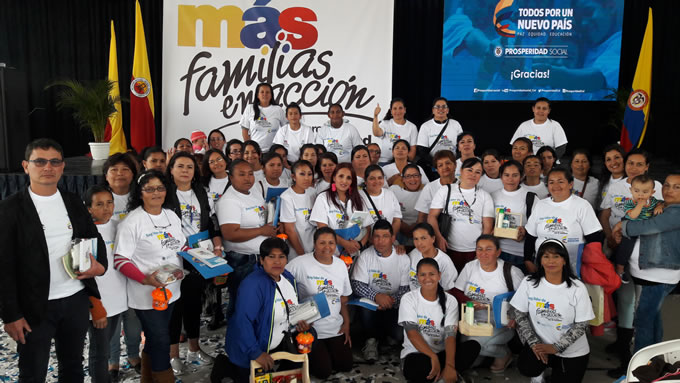Anti-poverty initiatives such as cash-transfer programs have been the subject of much debate. Critics have argued that these programs are costly and reduce work incentives by fostering dependency on government hand-outs. More recent research, however, has shown that cash-transfer programs in particular may have positive short-term effects on nutrition and health. Still, we know little about the longer-term impacts on employment and hapiness. A recent study, by CESR researchers Titus J. Galama, Juan E. Saavedra and former CESR postdoctoral scholar Robson Morgan, addresses this question. The study (here and here) documents how a Colombian anti-poverty program improves economic and subjective wellbeing, and self-sufficiency for participant households three years into the program. Moreover, these effects may have been achieved at a reduced cost to taxpayers as the program appears to have allowed participant households to gain employment.
In 2007, Colombia introduced Familias en Accion Urbano (FAU), a conditional cash-transfer program modeled after Mexico’s PROGRESA. FAU targets low-income households with children in the country’s fourteen largest cities. It provides cash transfers conditional on young children attending regular medical checkups, and school-age children enrolling and continually attending school.
The study takes advantage of the fact that FAU eligibility is determined by a means-test, which enabled the researchers to compare households just above and below the cut-off means test score. Such households are arguably similar, on average, except that those below the cut-off were able to participate and those above the cut-off were not. Using census and survey data, the results show that three years into the program, beneficiary households reported greater income, consumption and formal-employment participation for both the household head and their partner. Increases in consumption that result from program participation map almost one to one to increases in income, and there is a substantial increase on food expenditures among beneficiary households, which appears to have increased the quantity and quality of nutritional intakes.
Beneficiary households also report greater overall satisfaction with life, greater happiness and greater satisfaction with food. The joint improvement in economic and subjective wellbeing of beneficiary households is consistent with the hypothesis that among households with basic unmet needs, policies that have a permanent impact on income and nutritional consumption may also have a lasting impact on subjective wellbeing and self-sufficiency.
By simultaneously measuring objective and subjective measures of wellbeing, the researchers shed light on potential pathways by which anti-poverty programs can improve wellbeing among households with unmet needs. In particular, the program appears to have improved nutritional intake, enabled families to work more, substantially increased income and consumption, and improved happiness. Furthermore, to the extent that anti-poverty programs help enhance participants’ formal labor market opportunities, these improvements were made at a reduced cost to taxpayers.
Overall, the study highlights how relatively small subsidies, further offset by additional government tax receipts from enhanced employment, can generate substantial benefits to poor families. The findings also provide support for the notion that people’s reported satisfaction with life could be a worthy goal of policy making, as others recently have advocated for. In the Colombian setting, subjective self-reports respond to policy changes, these responses are relatively long lasting and they are associated with important improvements in objective measures such as income, expenditures and participation in the workforce.
